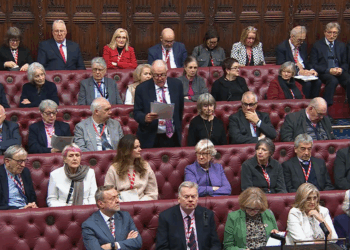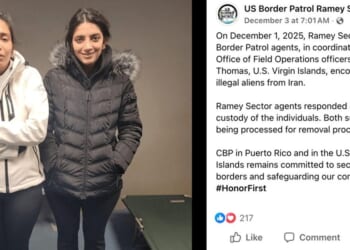THE recent report Creating a Neighbourhood Health Service: The role of churches and faith groups in social prescribing is a first-of-its-kind report by Theos and the Good Faith Partnership. It sets out how faith groups can respond to the health-care crisis by offering networks, resources, and holistic support for communities.
Since the NHS publication of Fit for the Future: 10 Year Health Plan for England, this has become a top priority for integrated care boards and local authorities, and engaging in social prescribing is a great way for churches to get involved.
Many churches run activities that can be “socially prescribed”. Befriending schemes, coffee mornings, chaplaincy, choirs, community pantries, exercise classes, debt advice, English-language classes, and parent-and-toddler groups are some examples. Many people are referred to a social-prescribing link worker (SPLW) owing to loneliness or low mood, and these types of activities can be a good fit for them.
At St Stephen’s, West Bowling, in Bradford, Shine West Bowling was established to meet the needs of the community. The project provides a community café, a children’s clothes bank, art clubs, and skills-based classes.
Since getting to know their local SPLW, hosting them for visits and now receiving referrals, St Stephen’s has been told that the most valuable thing about what it offers is the atmosphere of welcome, the opportunity for anyone to come in for a cuppa, and having volunteers on hand to chat, listen, help people with filling in forms (using online systems for services such as the GP), and offer support to people who are making phone calls.
This is simple, makes a significant difference to the isolated, and can ease the pressure on GPs to support people in gaining access to necessary public services.
Alongside our report, Theos and the Good Faith Partnership published a “How to” guide for faith leaders. This provides clear next steps for churches that want to receive social-prescribing referrals in their activities.
The best place to start is to identify your local SPLW. Their names and phone numbers will likely be listed on a local GPs’ website under the “Meet the team” or “Well-being” section. If you can’t find that information, give your GP reception a ring.
Instead of emailing, we suggest that you give your SPLW a call. Tell them who you are and what activities you have to offer. Invite them for a visit, or ask whether you can take them for a coffee.
If you meet your SPLW, we suggest that you use the “Fact sheet” template in the “How to” guide. This includes all the information that your SPLW will need to know to feel confident in referring patients to your activity, such as your safeguarding policy and any explicit religious content in the activity.
Making this connection and maintaining a relationship with your SPLW are crucial. Ask whether you can keep them updated by way of a newsletter or email bulletin, perhaps, or if they would be willing to meet every six months.
A good relationship with your SPLW can be the starting point for further engagement with community well-being. In central Nottingham, SPLWs now hold meetings with patients at church cafés, as these are safe spaces where signposting to other activities and pastoral support is available.
In Northampton, Broadmead Community Church ran a community listening event, at which they asked the local community about their experiences of health and well-being. They have built on this by holding regular forums for professionals and volunteers working on well-being issues in the town, including the council’s public-health team, GP-practice staff, and police engagement officers.
You can also have conversations with your SPLW about what the community needs, where there are gaps, and how you might be able to work together to fill those. Getting to know other faith groups, as well as charities, in your area is also important to avoid duplication and make the most of everyone’s resources and insights.
To read the report Creating a Neighbourhood Health Service, visit the “How to Engage in Social Prescribing: Faith leaders” guide, and download the printable local- activities fact-sheet template.
churchworks.org.uk/our-work/wellbeing
Esther Platt is a senior consultant at the Good Faith Partnership. The organisation provides a secretariat to the ChurchWorks Commission.

















